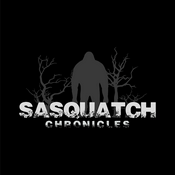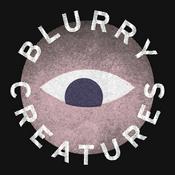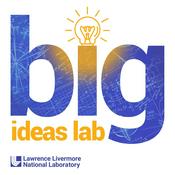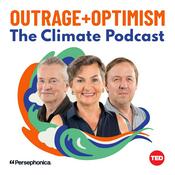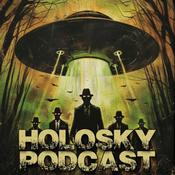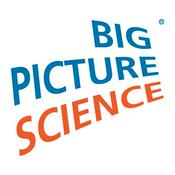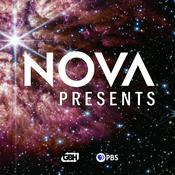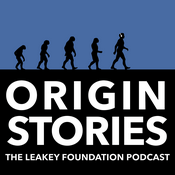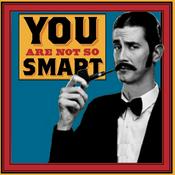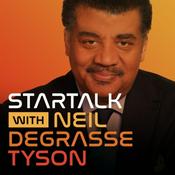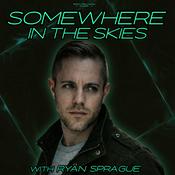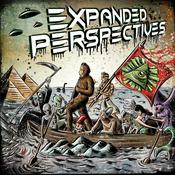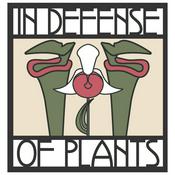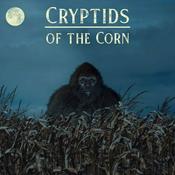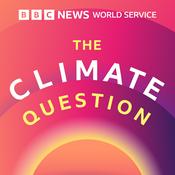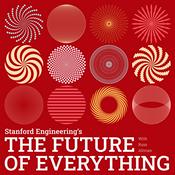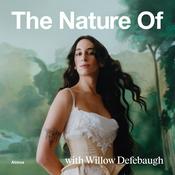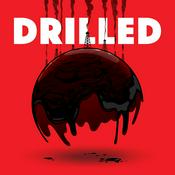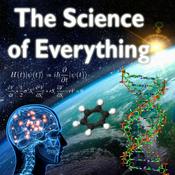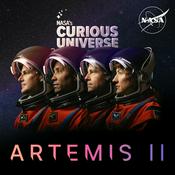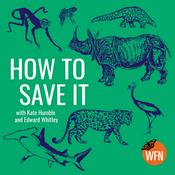147 episodes
What's New in Science With Sabine and Lawrence | Fusion Dark Matter, String Theory in Biology, and Rapid Evolution
2/13/2026 | 58 mins.I’m back with my friend and colleague Sabine Hossenfelder for another episode of “What’s New in Science”. I think this is one of my favorite dialogues that we have had. Spending time with Sabine was a nice chance to step away from my physics lecture series for a bit. I know many of you have been enjoying the lectures, so don’t worry, they’ll be back soon.
In this episode, we covered the kind of science news I like best: ideas you can argue about and results that make you recalibrate. Sabine opened with describing a clever proposal that future fusion reactors might double as axion dark matter factories, producing a flux of very light, weakly interacting particles through neutron-lithium reactions in the shielding. That led to a discussion about what people mean by “axions,” why particle physicists tend to be more particular about the term, and why I’m always more interested in dark matter candidates that were invented to solve an actual problem, not just to fill a cosmological gap. From there we jumped to quantum mechanics at the edge of common sense, with a Vienna experiment showing interference from a cluster of thousands of atoms, and a friendly disagreement about whether “collapse” is a real physical process or just the wrong way to talk about what quantum mechanics is doing.
We also talked about AI and math, including the recent swirl of claims about machines proving famous open problems, what was hype, what was rediscovery, and what might genuinely be changing in how mathematicians search the landscape. Then we went from equations to extinction, with a fascinating new approach using space dust and helium isotopes to argue that life may have started rebounding after the Chicxulub impact far faster than people had assumed. Sabine brought a surprising example of string theory mathematics finding a practical use in modeling biological networks, and we ended with biology proper in two very different moods: a sobering study in mice suggesting lung tumors can hijack vagus nerve signaling to suppress local immune responses, and then a lighter result about dogs learning words from overheard human conversation at roughly toddler level. My dog Levi, who many of you have seen on the podcast, was asleep next to me while we talked about it, which felt like the right way to end.
As always, thank you for your continued support, and I hope the changing of seasons brings you good time with friends and family.
As always, an ad-free video version of this podcast is also available to paid Critical Mass subscribers. Your subscriptions support the non-profit Origins Project Foundation, which produces the podcast. The audio version is available free on the Critical Mass site and on all podcast sites, and the video version will also be available on the Origins Project YouTube.
Get full access to Critical Mass at lawrencekrauss.substack.com/subscribe- Any sufficiently advanced technology is indistinguishable from magic, as Arthur C. Clarke put it. In that spirit, the way we get closest to “magic” in physics is not by memorizing more facts or equations, but by learning a few mental tools that help us see through the illusion of complexity by extracting the wheat from the chaff. They are all simple at heart, but nevertheless quite powerful, and they form the core of what I call the Gestalt of Physics—the worldview that governs how physicists approach nature. And some of them can actually seem like magic to the uninitiated!
I’m also pleased to share a quick PSA. We’re organizing our next Origins travel adventure: a sailing expedition through the Greek archipelago (July 24 to 31) with a possible Cyprus add-on (July 18 to 23). If you’re interested, it’s worth raising your hand early. These trips tend to fill quickly. Express interest at http://originsproject.org/greece-2026
In Lecture 1, I used powers of ten as an intellectual zoom lens, a way to escape the trap of human scale. Lecture 2 steps back and asks a more fundamental question: how do physicists consistently make progress when the world looks hopelessly complicated?
This lecture focuses on the fundamental toolkit for seeing. We will use these tools throughout the series, because they are the difference between being dazzled by nature and being able to interrogate it, and ultimately understand it.
First, order of magnitude thinking, the art of using powers of ten and rough estimates. It is how you keep your intuition tethered to reality, and how you avoid being bullied by big numbers dressed up with false precision.
Second, approximation, which is where I introduce my super cow. It is not only a spherical cow. It’s better. My super cow has exactly the features we need for the question at hand, no more, no less, and it politely agrees to ignore everything irrelevant. I introduce it with a joke, but it is also the core of how we turn messy reality into something we can actually calculate without lying to ourselves.
Third, dimensional analysis, one of the great bargains in science. The fact that there are essentially only 3 fundamental ‘dimensional’ quantities describing nature—Length, Time, and Mass—means that all physical quantities can be related to other physical quantities through a small set of relations. Keeping track of dimensions allows us to often guess what the relations are, without knowing any details of specific physical situations. It seems like magic. By keeping track of the dimensions underlying quantities, you can often infer the form of an answer and you can catch nonsense instantly. Sometimes the most important result is realizing something cannot be right, because that is where new physics likes to hide.
Along the way I adopt some Fermi style challenges—named after the remarkable physicist Enrico Fermi—to show how these ideas work in real time, and why they are not parlor tricks. They provide a training in scientific judgment. I also end with a preview of what comes next, symmetry, a concept that quietly runs far more of the universe than most people realize.
Enjoy, and feel free to share.
Lawrence
As always, an ad-free video version of this podcast is also available to paid Critical Mass subscribers. Your subscriptions support the non-profit Origins Project Foundation, which produces the podcast. The audio version is available free on the Critical Mass site and on all podcast sites, and the video version will also be available on the Origins Project YouTube.
Get full access to Critical Mass at lawrencekrauss.substack.com/subscribe What's New in Science With Sabine and Lawrence| New Year's Edition: Big ideas, precision measurements, and prebiotic molecules.
12/31/2025 | 53 mins.New Year’s Eve always comes with that familiar urge to clean the slate, toss out what didn’t hold up, and keep what actually earned its place. That’s basically the spirit of our latest “What’s New in Science” episode with Sabine Hossenfelder.
We began with the season’s favorite shiny object: wormholes. The headlines have been everywhere, but we talked through why most of these stories quietly slide from “a speculative tool in a model” to “a virtual phenomenon that might be useful in calculations.” Traversable wormholes of course still run straight into hard constraints like negative energy and the time machine problem.
From there we moved to something much more grounded: CERN. ATLAS has now observed the Higgs decaying into muon pairs, which is exactly the kind of precise confirmation you want for the Standard Model, and while it is yet another remarkable confirmation of how well the fundamental feature of the Standard Model works, it once again sharpens the contrast with the inexplicable nature of the only feature that doesn’t seem to fit: neutrino masses. And it leaves us hanging about where to look next.
We next spent time on what the future might look like for big particle collider projects and what it says about the field’s priorities, including the signal sent by China’s latest five-year plan, which no longer features a massive circular collider proposal. We touched on a smaller CERN result as well, and used it to reflect on a broader point: some of the most stubborn, interesting physics lives in regimes that are messy rather than glamorous.
Then we took a quick detour into a quantum gravity-adjacent proposal about whether the way we average quantities in general relativity could matter for quantum corrections, and finally landed on a genuinely satisfying closer: OSIRIS-REx’s Bennu samples. Finding ribose alongside other prebiotic building blocks makes it harder to dismiss the idea that the chemistry of life might be widespread, and not a once-only cosmic fluke.
I hope you enjoy the episode, and I hope you’re welcoming the new year surrounded by friends and family. Thank you, as always, for listening and for your continued support.
As always, an ad-free video version of this podcast is also available to paid Critical Mass subscribers. Your subscriptions support the non-profit Origins Project Foundation, which produces the podcast. The audio version is available free on the Critical Mass site and on all podcast sites, and the video version will also be available on the Origins Project YouTube.
Get full access to Critical Mass at lawrencekrauss.substack.com/subscribe- On this week’s episode of The Origins Podcast, I ended up in a place I genuinely never expected to go: the humble “like” button. When the idea first landed in my inbox, my reaction was basically, why on Earth would anyone write a whole book about that? Then I spoke with Martin Reeves, and I discovered that the history of this tiny icon is a surprisingly rich window into innovation, entrepreneurship, human psychology, and the modern attention economy.
Martin is a senior figure at BCG’s Henderson Institute, but what made the conversation especially fun for me is that he is not a consultant who wandered into science. He has a background in science, and then wandered into the world of strategy, technology, and ideas, and he approaches the “like” button the way I wish more people approached our digital world: with curiosity, skepticism, and a willingness to follow evidence across disciplines.
The central irony, of course, is that the “like” button began as an almost laughably small, practical solution. In the story Martin and his coauthor reconstructs, it is often less about a single inventor than about a messy ecosystem of micro innovations, technical constraints, and cultural accidents. Yet those small choices compound. The result is that something as simple as a handful of code became a universal signal that helped shape social media, transformed advertising, and created feedback loops that are now baked into the infrastructure of daily life.
We also dig into why it works so well on us. The mechanisms are not mysterious in the abstract, they are biological and social, but the scale is unprecedented. Approval and recognition are ancient. Industrialized approval is new. And once you start thinking that way, you notice how these same feedback dynamics are spreading into new domains, including the tools we now use to interact with AI.
This conversation surprised me, and I suspect it will surprise you too. Indeed, if you are like me, and wondered why the like-button is worth discussing, you will be surprised to learn how much of the modern world is quietly organized around it.
You can listen on any podcast platform, watch on YouTube, or view ad free on Substack. And if you are tempted at the end, well, you may even find yourself clicking the very thing we spend the episode dissecting.
You can listen on any podcast platform, watch on YouTube, or view ad free on Substack. And if you are tempted at the end, well, you may even find yourself clicking the very thing we spend the episode dissecting.
As always, an ad-free video version of this podcast is also available to paid Critical Mass subscribers. Your subscriptions support the non-profit Origins Project Foundation, which produces the podcast. The audio version is available free on the Critical Mass site and on all podcast sites, and the video version will also be available on the Origins Project YouTube.
Get full access to Critical Mass at lawrencekrauss.substack.com/subscribe - On this week’s episode of The Origins Podcast, I am excited to release a conversation that has been sitting in our archives for more than a year. When we first recorded this discussion with conflict mediator and systems thinker Diana McLain Smith, political polarization was already a significant national and international problem. It has only gotten worse.The world seems more tribal than ever, and there is constant pressure to have to pick a side in every argument and not listen to any different opinions, or even divergent facts. In this episode, we step back from that noise and ask what our deep evolutionary wiring for in group loyalty means in a complex modern democracy, how history and culture can turn ordinary differences into hardened divides, and what it might take to reduce the space between “us” and “them” rather than accept permanent hostility as normal.Through stories that range from local communities like Billings, Montana and Lewiston, Maine to the quiet work of reform in the United States Congress, Diana draws on decades of experience with families, organizations, and civic coalitions to show that citizens are not as powerless as we often feel, especially when we resist the demand for instant certainty and allow ourselves to say, “I do not know, I have not really thought about that before. I’m not on any one side. Let me look at the evidence before I form an opinion.”
This is the basis of much of the scientific method, and it is something that we can all learn to do too. The benefits are immediate. You approach life with more curiosity, and you are freer from assumptions and biases.
Conversations like this go to the heart of the Origins Project Foundation mission, which is to bring the habits of mind that underlie science into our shared public life. My conversations on the podcast blend serious works in physics, psychology, and history with urgent questions about how we live together, and to model what it looks like to treat ideas as hypotheses to be tested rather than badges of tribal identity.
In an environment that rewards outrage more than understanding, a commitment to evidence, curiosity, and a willingness to change one’s mind is not just an intellectual posture, it is a civic act.
This episode with Diana is offered in that spirit.
As always, an ad-free video version of this podcast is also available to paid Critical Mass subscribers. Your subscriptions support the non-profit Origins Project Foundation, which produces the podcast. The audio version is available free on the Critical Mass site and on all podcast sites, and the video version will also be available on the Origins Project YouTube.
Get full access to Critical Mass at lawrencekrauss.substack.com/subscribe
More Science podcasts
Trending Science podcasts
About The Origins Podcast with Lawrence Krauss
The Origins Podcast features in-depth conversations with some of the most interesting people in the world about the issues that impact all of us in the 21st century. Host, theoretical physicist, lecturer, and author, Lawrence M. Krauss, will be joined by guests from a wide range of fields, including science, the arts, and journalism. The topics discussed on The Origins Podcast reflect the full range of the human experience - exploring science and culture in a way that seeks to entertain, educate, and inspire. lawrencekrauss.substack.com lawrencekrauss.substack.com
Podcast websiteListen to The Origins Podcast with Lawrence Krauss, Science Friday and many other podcasts from around the world with the radio.net app
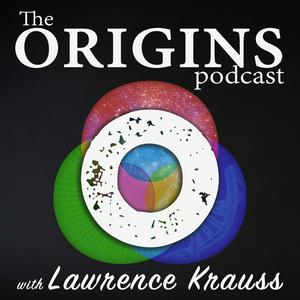
Get the free radio.net app
- Stations and podcasts to bookmark
- Stream via Wi-Fi or Bluetooth
- Supports Carplay & Android Auto
- Many other app features
Get the free radio.net app
- Stations and podcasts to bookmark
- Stream via Wi-Fi or Bluetooth
- Supports Carplay & Android Auto
- Many other app features


The Origins Podcast with Lawrence Krauss
Scan code,
download the app,
start listening.
download the app,
start listening.




